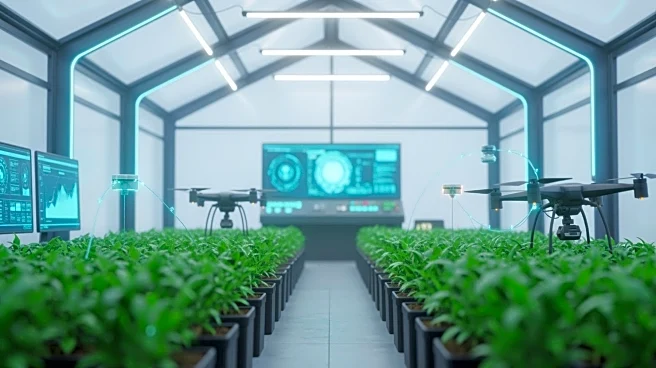What's Happening?
The smart oil crops market is experiencing growth due to advancements in precision farming technologies. A report by ResearchAndMarkets.com highlights the integration of real-time root-to-oil intelligence, swarm robotics, and micro-dosing in oilseed farming.
These technologies aim to optimize yield and resource use, addressing global food and biofuel demands. Government initiatives, such as India's National Mission on Edible Oils - Oilseeds, are supporting this growth by promoting high-yield seed varieties and digital tools. In the U.S., the USDA projects an increase in oilseed production, driven by a shift to rapeseed cultivation and precision farming practices. The market is poised to enhance food security and reduce reliance on imported oils.
Why It's Important?
The expansion of the smart oil crops market is significant for global food security and sustainability. By adopting precision farming technologies, the industry can increase oilseed yields while minimizing environmental impact. This is crucial as the world faces challenges like climate change and resource scarcity. The market's growth also supports economic development, particularly in regions heavily reliant on agriculture. For the U.S., increased oilseed production can reduce dependency on imports, stabilize domestic markets, and support rural economies. The integration of smart technologies in agriculture represents a shift towards more efficient and sustainable farming practices.
What's Next?
As the smart oil crops market continues to grow, further advancements in technology and government support are expected. Companies are likely to invest in research and development to enhance precision farming tools and techniques. The adoption of AI, IoT, and smart machinery will likely increase, with more farmers integrating these technologies into their operations. Policymakers may introduce additional incentives to encourage sustainable farming practices. The market's evolution will be closely watched by stakeholders, including farmers, agribusinesses, and environmental groups, as it holds the potential to transform agricultural practices globally.
















